Gracie Fields Orphanage, Peacehaven, Sussex
The Gracie Fields Orphanage was opened in 1933 in a large house at 127 Dorothy Avenue North, Peacehaven, Sussex. Gracie had bought the property, then named 'Telford' for her parents in 1928 but it had soon proved too isolated for them and they had moved to another house, 'The Haven', a couple of miles away on Telescombe Cliffs Way. 'Telford' was left standing unused until 1933 when Gracie donated the house to the Variety Ladies Guild for use as a home for the children of deceased or impoverished actors. The home was named The Gracie Fields Children's Home and Orphanage in her honour.
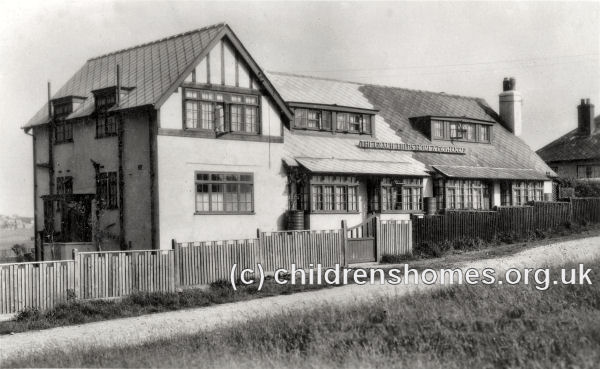
Gracie Fields Orphanage, Peacehaven, date unknown. © Peter Higginbotham
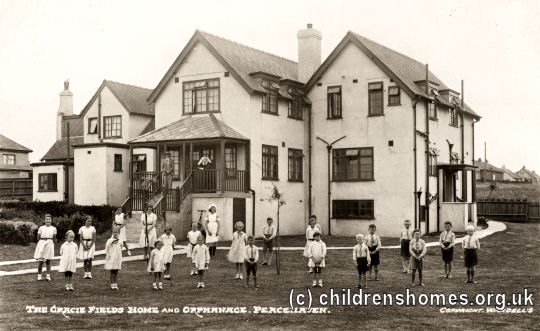
Gracie Fields Orphanage, Peacehaven, date unknown. © Peter Higginbotham
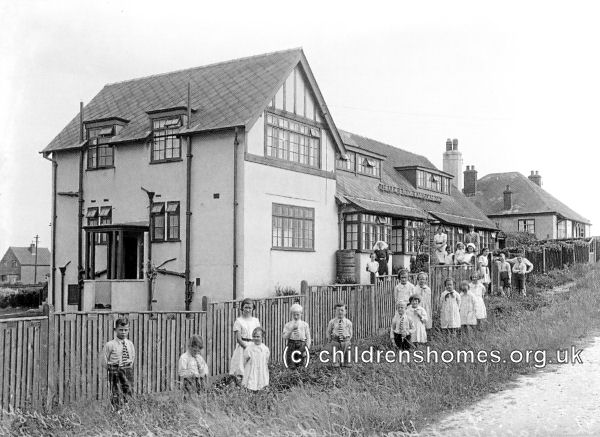
Gracie Fields Orphanage, Peacehaven, date unknown. © Peter Higginbotham
As well as paying the running costs of the home, which housed up to 25 children, Gracie was a regular visitor, sometimes bringing along other show business folk such as Dora Bryan (below).
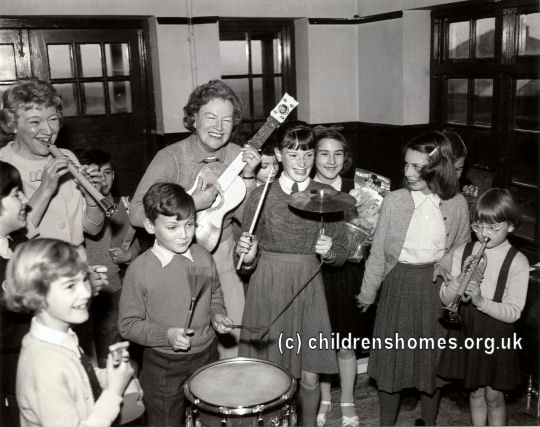
Gracie Fields and Dora Bryan at the Gracie Fields Orphanage, Peacehaven, date unknown. © Peter Higginbotham
During the Second World War, the home was used as an evacuation centre. In 1962, the operation of the home was taken over by the Actors' Charitable Trust who had previously run the Actors' Orphanage. However, faced with a steep decline in numbers being admitted to the home, it was closed in 1967. The property was then taken over for use as a private nursing home whose opening Gracie attended. The home is still in operation.
The following memories and photographs of the home have been very kindly contributed by Ian Pilbeam. His grandmother Elsie Rose Cooper (née Penfold) was the matron and with his Grandfather Richard Cooper they were the live-in couple who ran the orphanage from the late 1950s to mid-1960s.
I believe the orphanage was run by an organisation from London and a Miss Head was the person to whom they reported.
The early photos show that it was a happy place with somewhere around 14 to 16 children there at any one time. Most were not orphans but were the children of actors, circus acts or touring couples who needed a stable base for their children so they could go to school and be looked after. A few were genuine orphans but I do not know how they came to be there.
On two occasions I was at the orphanage for longer periods when my father was away at sea and my mother went over to help out, once was when Elsie had flu. I was there so long that I was enrolled at the local primary school both times.
I liked being there as there were extra special toys such a tricycles and also a sandpit. Tea was served in a room at the front on long tables and nearest to the door was a large television set that would often be on with the sound turned down at tea time. My Grandfather, who was ill might even shuffle down the corridor and say hello to everyone supporting himself on the door-frame before shuffling back.
We slept in dormitories in what seemed like the roof and there was a communal bathroom with perhaps three baths in it and on bath days there would be two or three to each bath with water shared between all.
A large indoor playroom which had a dark wooden floor also contained the piano which I liked to play on until my grandmother would hurry in and tell me off for disturbing my grandfather.
We'd all walk to school together, with the older girls helping the younger children to get their coats on and one of them taught me to tie my shoelaces. The walk to school seemed a long way and was past fields where hay was being cut and made into oblong bales, past brambles, past gullies that seemed to steeply go down to the sea. One day one of the boys found an old tyre and the older boys took it in turns pushing it along, which was fine until a few mornings later it rolled down one of the gullies and we all stood in a line at the top looking down into the bushes to see it could be retrieved, which it couldn't.
Coming back from school was the same but seemed much quicker and invariably I would arrive back wearing the school apron under my raincoat having forgotten to leave it on the peg at school.
The grass in the field at the back was cut with a tractor and afterwards there would be a competition to see who could build the highest pile of cut grass to which all the children excitedly took part in. The prize was to choose a toy from the bottom cupboard of a wardrobe in what I now imagine was the guest room. The toys must have been donated and I recall that many of them were tin clockwork cars for the boys and things like skipping ropes or dolls for the girls.
One of the true orphans was called Duncan and when my Grandfather died sometime in 1960 my Grandmother had to leave the job as it was for a couple. She returned to a house she had in Luton and Duncan went too. He must have been 15 or 16 as he had a job as a porter working for British Rail at St Albans station. Where he went on from there I do not know.
I do believe that some of the Chipperfield circus family were at the orphanage as was Gypsy Rose Lee's son Erik Lee [Preminger] presumably while she was at the London Palladium and there is a photo I have yet to find of her visiting the orphanage. I do not know of any others at this present time.
Ian Pilbeam, May 2019.
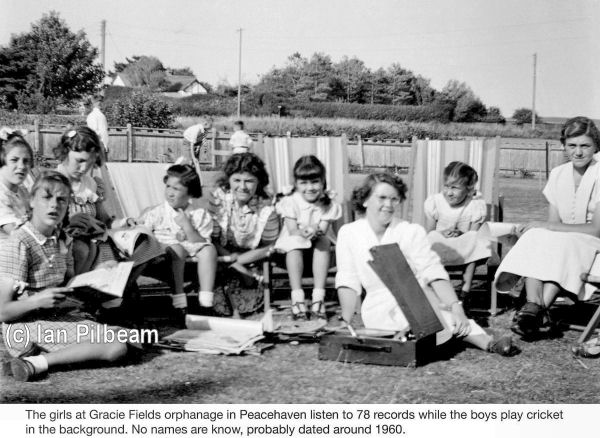
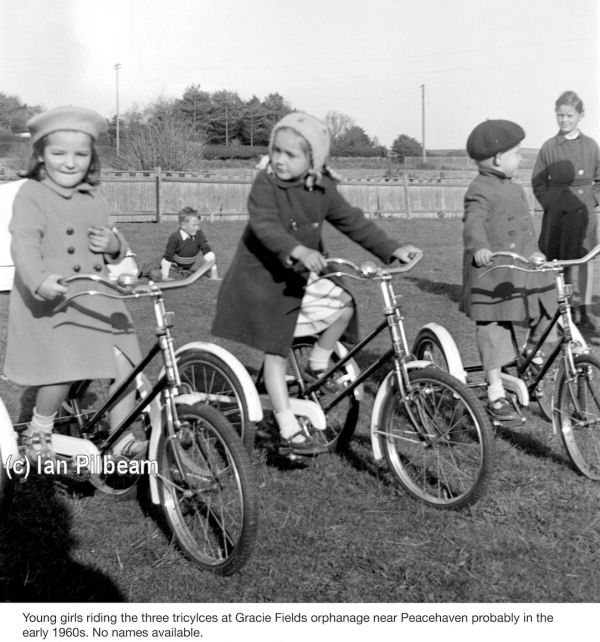
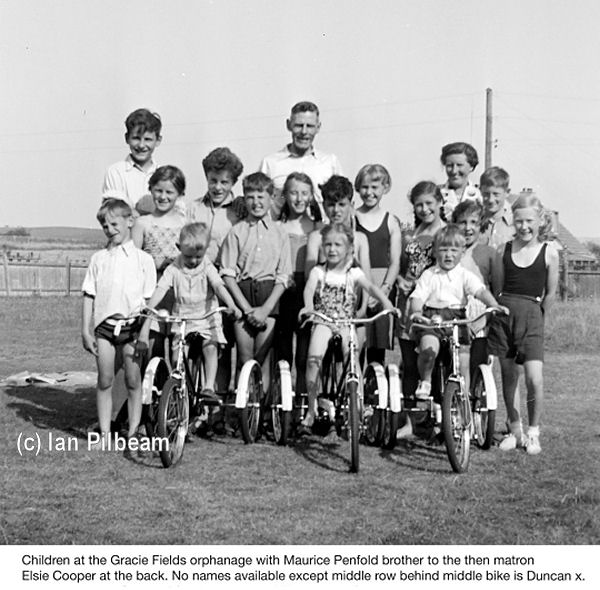
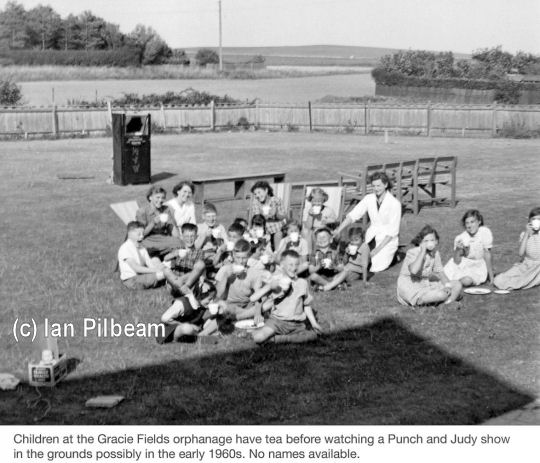
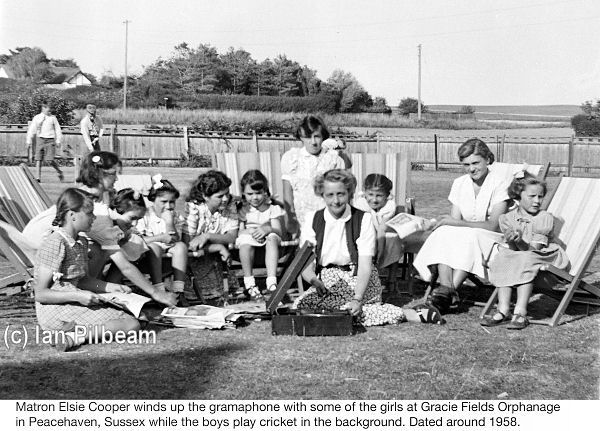
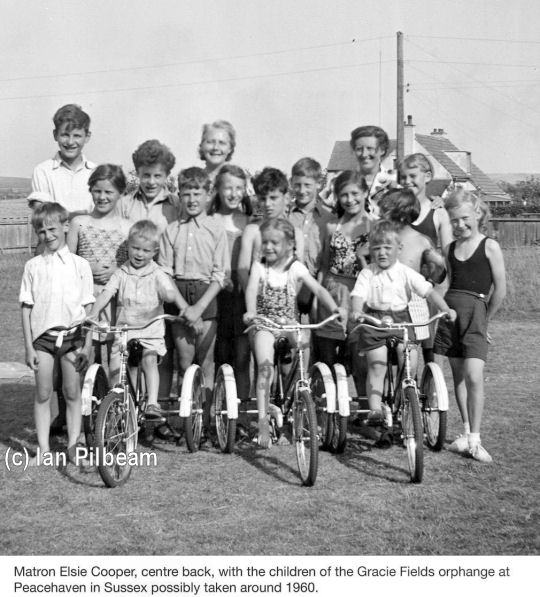
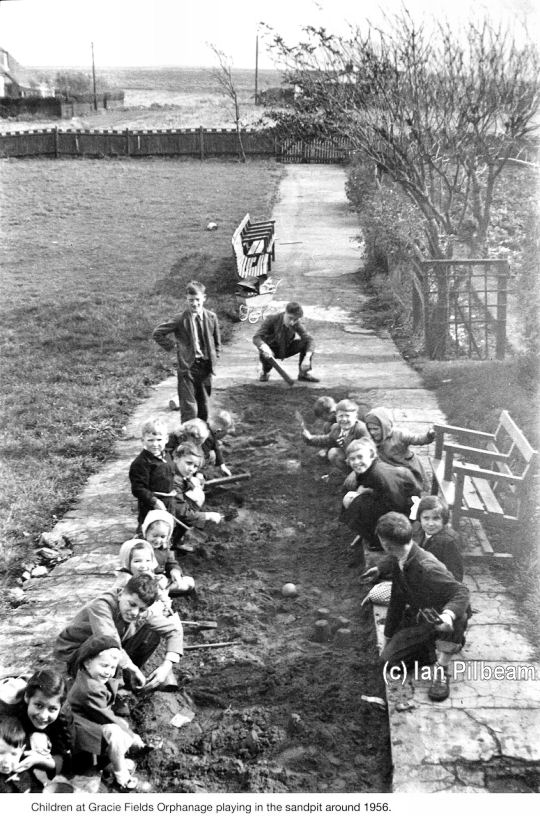
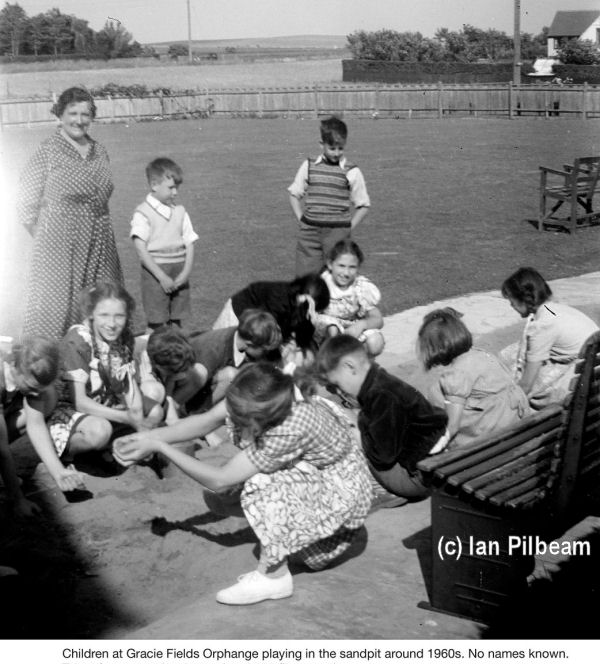
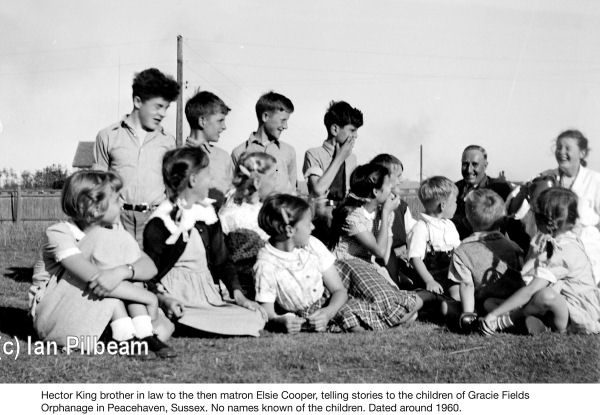
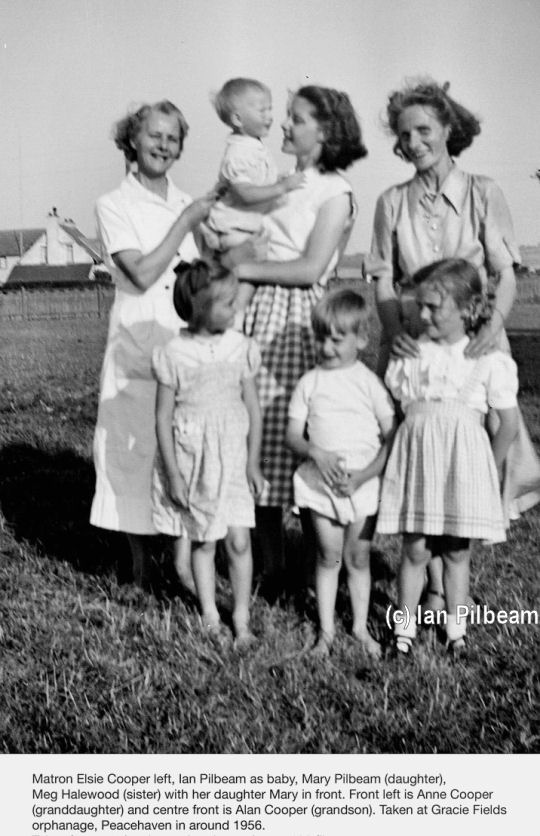
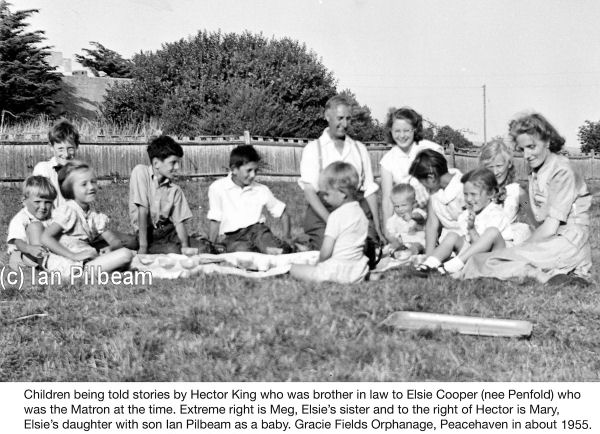
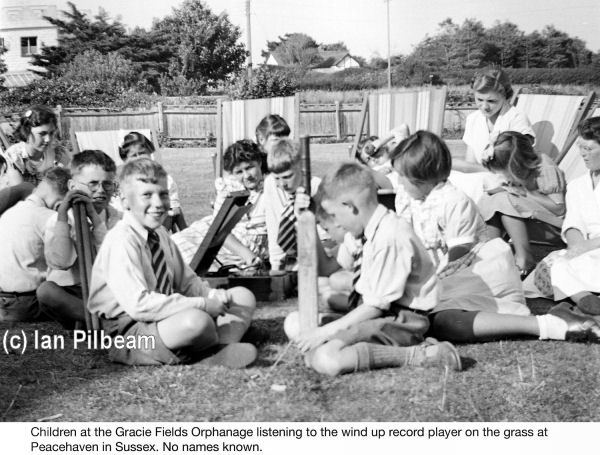
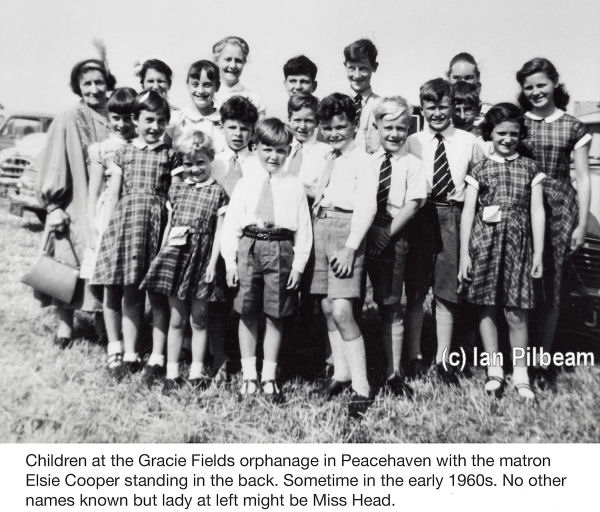
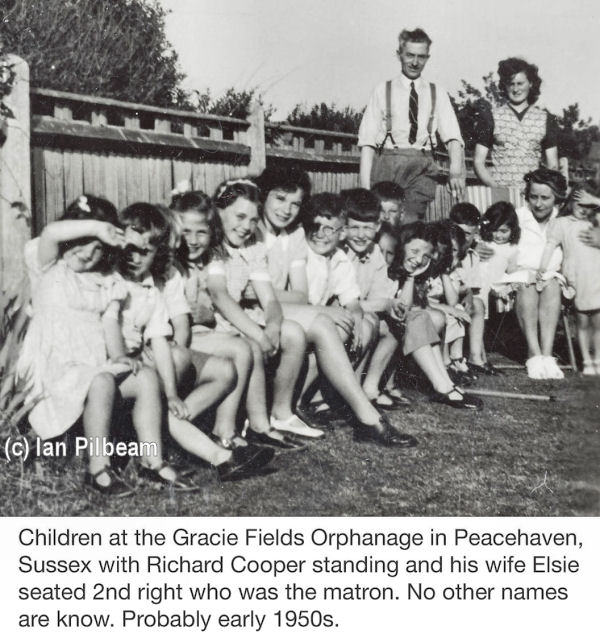
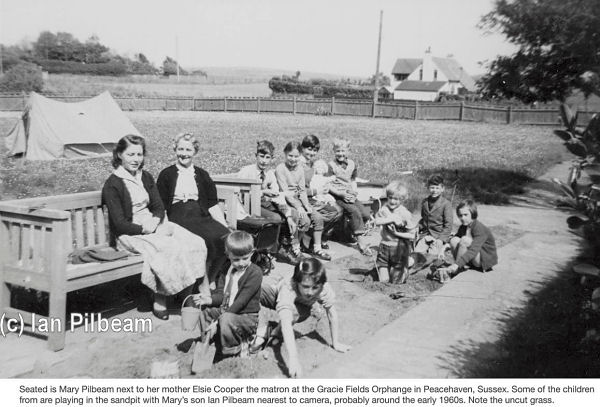
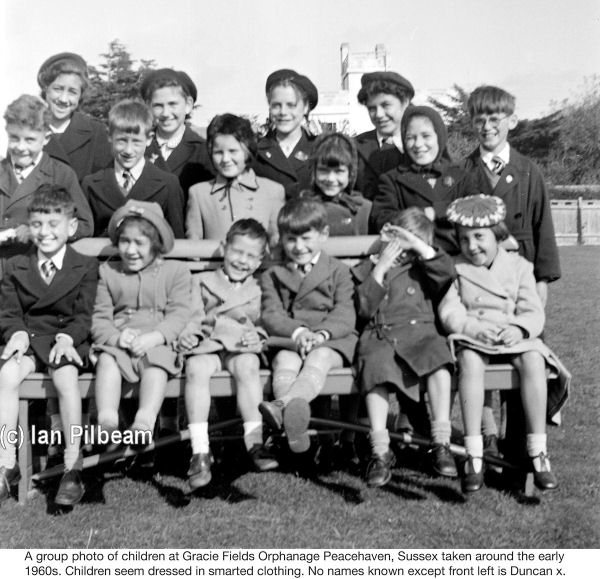
Records
Note: many repositories impose a closure period of up to 100 years for records identifying individuals. Before travelling a long distance, always check that the records you want to consult will be available.
- None identfied at present — any information welcome.
Bibliography
- Higginbotham, Peter Children's Homes: A History of Institutional Care for Britain s Young (2017, Pen & Sword)
Links
Except where indicated, this page () © Peter Higginbotham. Contents may not be reproduced without permission.


